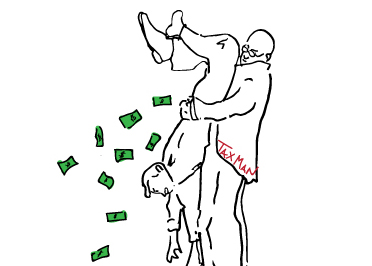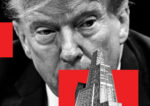Trending
REBNY pushes to declaw tax on commercial tenants in Manhattan
A proposed bill would limit how the 3.9 percent tax is applied

The Real Estate Board of New York is gunning for a proposed bill that would free certain businesses from a tax that brings the city hundreds of millions of dollars each year.
The commercial rent tax — a 3.9 percent tax on base rent — applies to tenants south of 96th Street in Manhattan who pay more than $250,000 in annual rent. The proposed bill would change this rent threshold to $500,000. REBNY, along with the Downtown Alliance, the Partnership for New York City and others, penned a letter on Wednesday to Mayor Bill de Blasio and Speaker Melissa Mark-Viverito asking that they include the measure in the city’s 2018 budget.
“We strongly urge you to include action on this issue in the Fiscal Year 2018 city budget,” the letter states. “It would send a strong message to business owners who are bearing the burden of recent mandates designed to improve conditions for many that New York is a city that also cares about them.”
The bill, first introduced by Council member Dan Garodnick in May 2015, seeks to change a 1963 law that brings in hundreds of million of dollars each year. The tax is expected to bring in $816 million in 2017 and then $848 million in 2018. The city’s Department of Finance estimates that the bill would relieve 3,300 businesses from the tax and cost the city $50 million annually. REBNY argues that the costs would be offset by resulting job and business growth.
The rent threshold was last increased in 2000 and, according to those who support the legislation, no longer reflects the realities of prices in Manhattan. The bill aims to relieve small businesses struggling to keep up with high rents in the borough.
CBRE’s [TRDataCustom] Paul Myers said the measure would have to bring the rent threshold higher to impact a majority of the tenants he represents. Still, he said the tax effectively causes double taxation, since landlords often include real estate taxes when they calculate rent.
“I have a philosophical problem with commercial rent tax,” Myers said. “It’s a very oddly constructed tax, always has been.”
He said the tax makes Manhattan less competitive.
“It’s the most expensive market in the country, and on top of that, we throw on a commercial rent tax,” he said.
During a hearing in February, Garodnick called the tax “unusual and unjust.” He said the tax hurts the small businesses, restaurants and boutiques that often give a neighborhood “character.”
“This is a great way to throw cold water on the local economy, and it is a relic of another era,” he said. “You ever wonder why we’re being overwhelmed by banks and chain drug stores in Manhattan? Well, this tax on commercial rent is one of your prime culprits.”
A few other related bills have been proposed that would exempt certain grocery stores and theater billboards from the tax.




